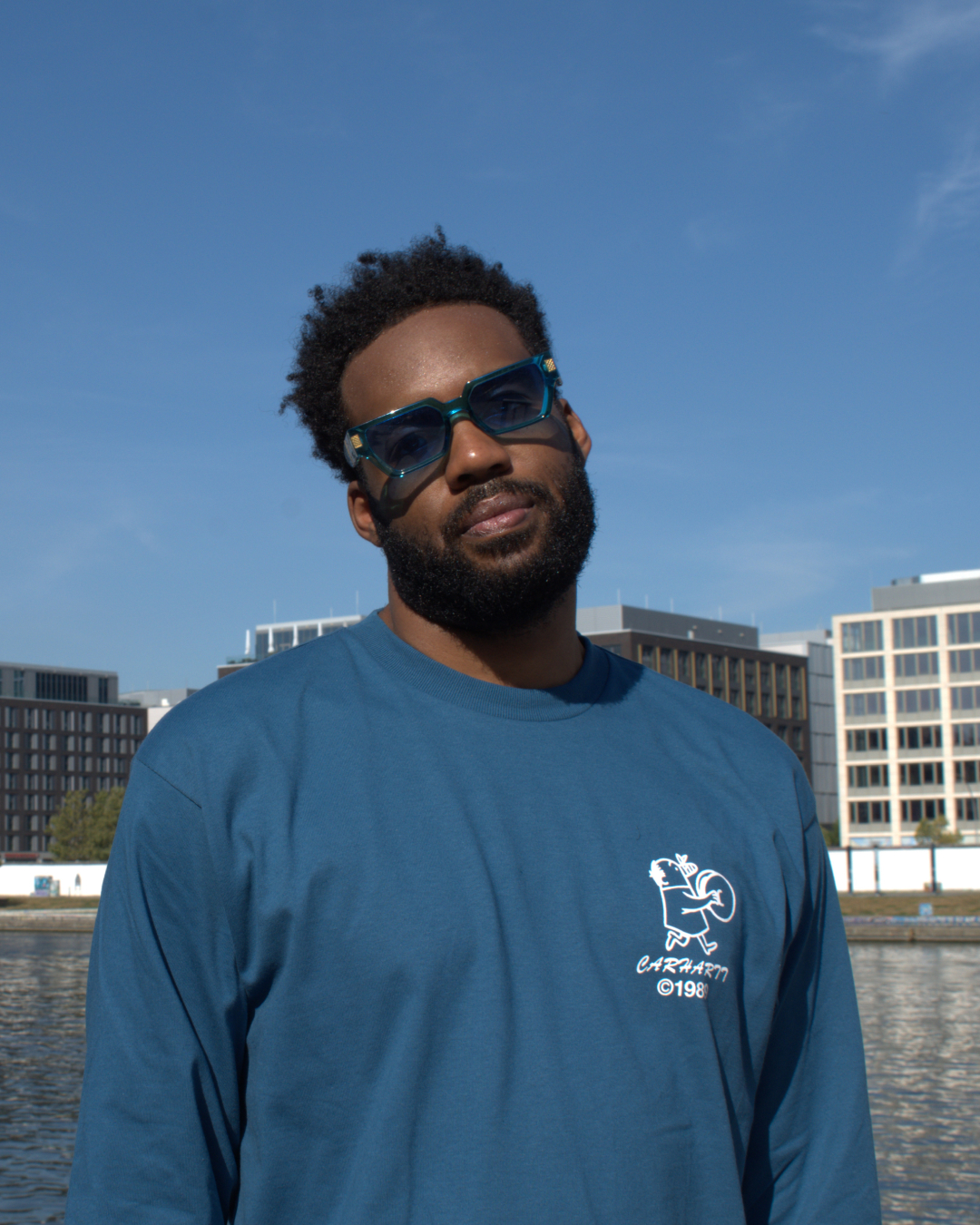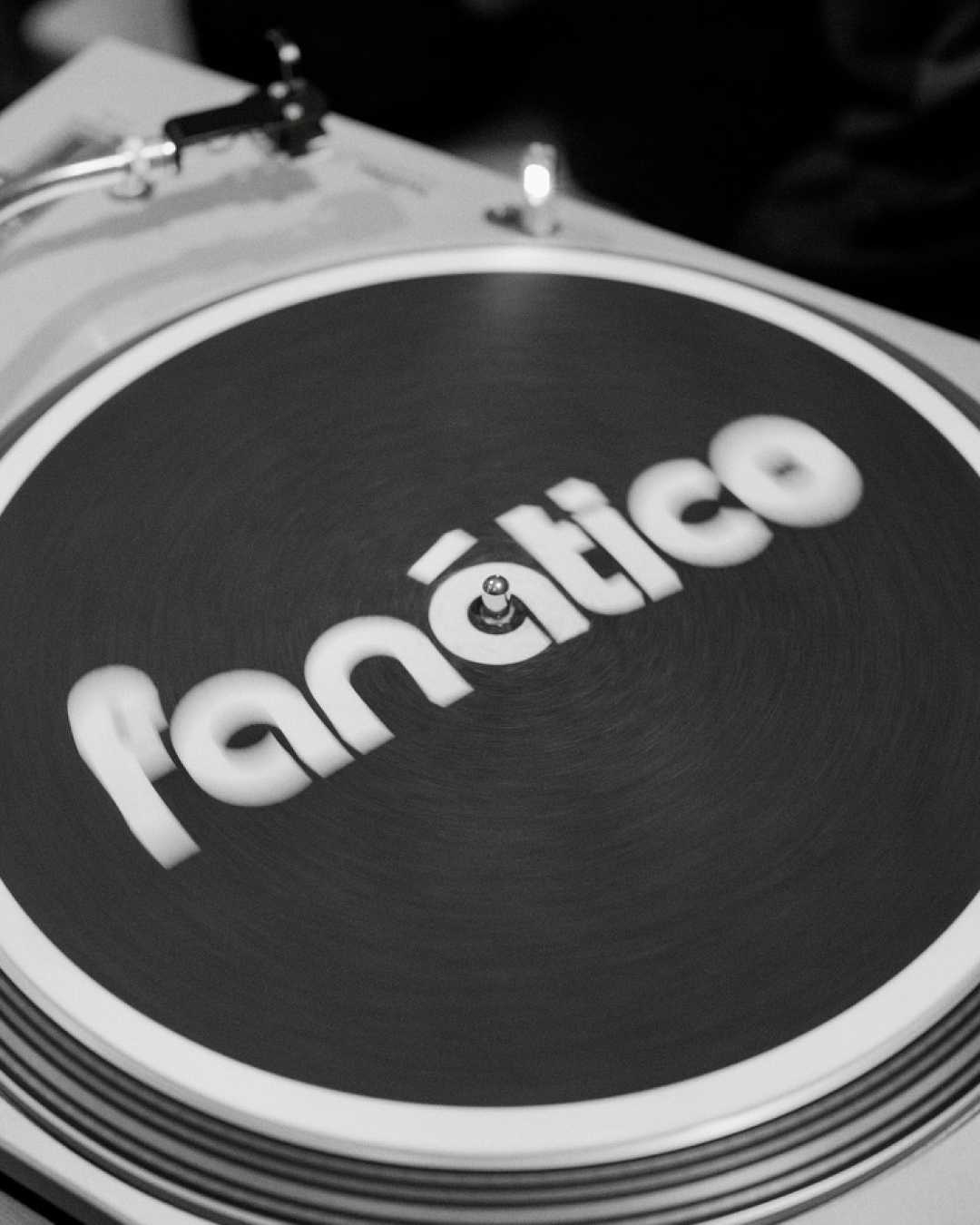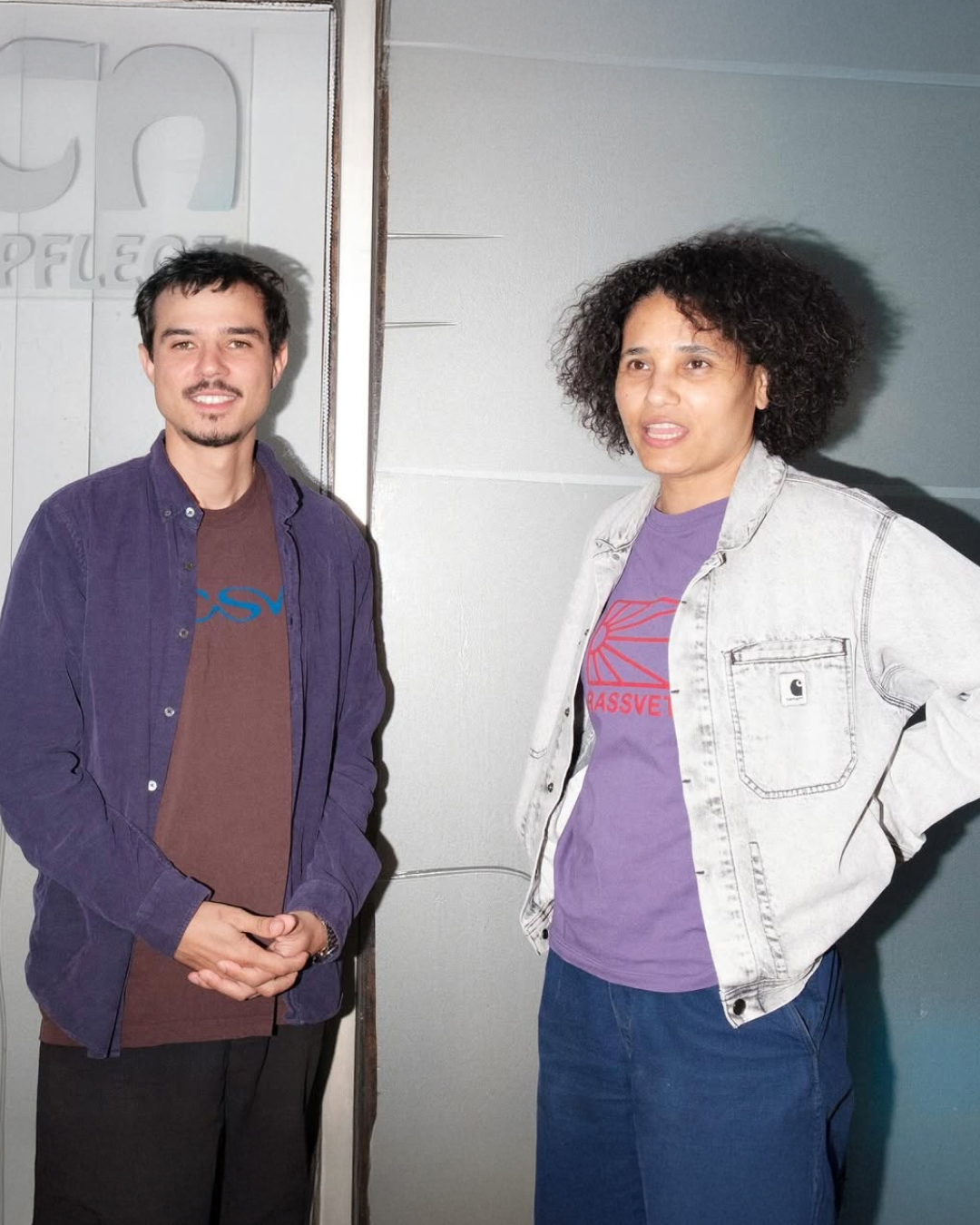Deepchild is one of the many monikers of Rick Bull – the Sydney raised, former Berlin-based DJ, producer and sound designer. A critical voice in Sydney’s music culture, from the late ‘90s to the early ‘00s, Rick helmed shows on FBi Radio and 2SER for a decade. With an ever-futurist sound spanning deep techno, dissociative electronica and ambient, Rick’s nine-year stint in Berlin saw him perform DJ and live sets across the globe, from the inky interiors of Berghain to Mexico, USA and Russia.
He has released stellar records and remixes on esteemed imprints such as Mille Plateaux, Future Classic, Freerange Records, and his own Seppüku Records. Rick’s newly released eighth studio album, Fathersong, is his most audacious work to date.
Radio was a big part of your life here in Sydney for many years. The audio landscape has changed a lot since then with the advent of digital radio and podcasts. Do you still listen to radio?
Radio was so incredibly critical for the those of us involved in the Aussie electronic music community during the 90s. I remember clearly recording audio cassettes of the dance shows on Radio 2RDJ, and then feeling totally beside myself when I was offered a chance to take the reins for 2SER’s Electroplastique program around 1996 or so. Thereafter I enjoyed a stint on FBi hosting Sunset - all up an entire decade as part of a really special consortium of inspired radio folk.
Certainly in the mid-90s (pre-internet, smartphones, social media), stations like 2SER were voices (politically and artistically) of so many diverse, fledgling communities. I feel like an element of this still exists, but that the landscape has changed so very much and a general sense of atomisation and decentralisation exists as a result of digital media. I’m an avid radio listener still, these days more of a Radio National and BBC Radio 1 guy for the most part. Shows like ‘Conversations’ are fantastic, and BBC’s ‘Woman’s Hour’ is a small and welcome portal back to the UK for me.
Locally, so-called ‘specialty music’ shows like Peter Hollo’s Utility Fog on Fbi feel like they pour much needed time and space into a landscape defined by algorythmic-driven reductionism. I still very much need to believe that there is room for radio programming beyond simply ‘content’, in order to believe that our cultural lives exist beyond the remit of mere consumption. If I’m honest, I also still enjoy finding foreign-language programming sometimes whilst driving, just to immerse myself in a sea of the unfamiliar. I want and need radio to surprise me, rather than merely offer familiarity
You spent many years living in Berlin. What makes it such a fascinating and continually alluring place for electronic musicians and DJs?
Berlin is a curious and ever-changing idea as much as it is a literal place. I was back visiting last month for the first time in several years, and it still felt both alien and familiar. This, for me, is the paradox of the city. Berlin is where my closest friends still live, and really was the city that gave me so much hope as an artist - from my first shows there in 2006 till my departure at the end of 2015.
Initially I felt attracted to it because of the promise it held in my imagination as a place for ‘rebirth’ after so many decades of dark political history - from the terror of the Nazis to the dark chapter of the wall-divided city. For me, it was films like Wim Wender’s ‘Der Himmel Uber Berlin’ which spoke to me long before clubland did. Traditionally, it’s been the promise of cheap rent, cultural inclusivity and largely ‘socialised’ services which make the place so appealing. By and large, this still feels true, but the landscape has so significantly changed there, as the eyes of the world have fetishised the landscape, and wealthier middle-class ‘digital nomads’ have reshaped the city.
I never really felt I’ve understood how ‘DJ’ culture works (does it even?), but found myself surprised and privileged by the opportunities Berlin offered up for me there in the early 2000s. I was terribly anxious and horrible at the party culture life while living there, but perhaps something of this reserved obsession for electronic music seemed to work in a particularly Gemanic context? I always found that, unlike American or Australian ‘EMD’, Berlin rewarded quiet focus and understated commitment to a craft. I just know that the city shaped and changed me and the way I understood politics and music, and still does. Ultimately, it was the conversations around values and social possibility which felt so sacred to me living there. Especially in summer, on the side of the lake.
“My most interesting club stories involve regrettable moments of being holed up with drug dealers and reprobates in bunkers in Amsterdam, filthy housing estates in Mexico City, or completely tweaked at 6am the car parks of Detroit in the middle of winter.”
You’ve played at some of the world’s best clubs, including the infamous Berghain. Can you share any interesting stories with us?
I feel like a bit of a wanker mentioning the Berghain thing too much these days, but yes, on several occasions between 2007 and 2015 I was lucky to DJ/perform live there…and all the more to be rebooked! As a producer and DJ, I think it offered a certain ‘stamp of proficiency’ for other clubs; a sign that I was interesting and engaging enough to consider booking In this sense, Berghain really helped open some doors for me to touring places like North America.
I loved the fact that Berghain always offers much longer DJ or live PA sets to artists, and I think this certainly helped me take my craft more seriously. And, in fact, to take more risks as a performer. The calibre of bookings there still inspires me and I’m honoured to have been booked among so many of my personal heroes.
Many of my most interesting club stories have actually come from far more ‘fast and loose’ bookings and involve regrettable moments of being holed up with drug dealers and reprobates in bunkers in Amsterdam, filthy housing estates in Mexico City, or completely tweaked at 6am the car parks of Detroit in the middle of winter. Playing Russia was always a law unto itself too - being sent back to hotel rooms with uninvited call-girls was always an interesting thing to navigate alone. There have been moments which are funny in retrospect, but felt really terrifying and uncomfortable at the time! Buy me a drink and we’ll talk and weep over these.
“I feel so strongly that grief witnessed and shared is grief healed. The lessons I’ve learned from mentors and friends is that death demands a pause for a time. This album is my offering of a pause, for both myself and whomever it resonates with.”
You’ve just released your 8th Deepchild album, Fathersong. What was the inspiration for the album and what were you looking to achieve sonically?
Fathersong was, in its way, somewhat unexpected. A dear friend described it as a sort of collaboration with my Dad, who died almost two years ago from dementia. It is certainly a body of work which felt like it emerged very organically, and has taken on a life of its own to me now. I suppose the album is a response from me trying to make sense of his passing, and the complex grief of the moment we are all sharing through the pandemic. A grief we all very much share, as our traditional rituals of ‘togetherness’ - from funerals to clubbing to sharing hugs - have been derailed and challenged in unprecedented ways.
I feel so strongly that grief witnessed and shared is grief healed, and I know that this can take many different forms. For me, the lessons I’ve learned from mentors and friends is that death demands a pause for a time - like the Jewish Shiva or Aveilut. This album is my offering of a pause, for both myself and whomever it resonates with.
Technically, as an album, it emerged from a shortlist of about 45 ‘sketches’ of drones and personal audio meditations sitting on my hard drive. Each was written in less than a day, and each comprised from only three to eight audio parts. I’ve just felt too psychically exhausted to contrive any polished statement, and ‘Fathersong’ was a response to this - an ambient album about my dad. About the space between death and whatever happens next. A response to visitations I’ve had from dad, woven together and through by experiences with plant medicine, music and morning views of the ocean.
I feel like music often only makes sense after it is written, and these days I have less to prove as an artist than I once did. With this in mind, I was struck by the response after sending some of this material to peers like Lawrence English, William Basinski and Brock “BV Dub” Wan Wey in particular. All encouraged and supported this unlikely foray into conceptual minimalism, and I was completely floored when Frankfurt’s Mille Plateaux jumped on it (and still am).
Sonically, I wanted to create a space of both liminality and intentional pause - but one largely free from sentimentality or nostalgia. The album features fragments of synthetic vocal treatments and fragments, and some perhaps obvious nods to artists like Steve Reich, Vladislav Delay and Leyland Kirby (whose work as The Caretaker is deeply engaged with narratives of cognitive decline). Woven amidst it all are perhaps some of ghosted nods to club tropes and empty dancefloors nestled next to a particular fetish I have for mainstream choral work. Mostly the album is just a way for me to remember my dad. That’s all I could hope for – a little diary fragment.
What kind of equipment makes up your studio these days? Are you a digital or hardware guy, or a mix of both?
99.9% digital, though I still have a bunch of vintage synths which keep the studio warm in winter. I feel pretty anxious surrounded by ‘things’ at the best of times, but generally find that I can achieve what I want via digital means. I work for companies like Native Instruments and Arturia as a sound designer and composer, so I feel like I have particular relationship with their software which I find gratifying. I’m an avid sample-mangler and huge fan of granular synthesis, and software tools really are the most efficient way for me to explore this world. The hardware I reach for most frequently in my studio is likely to be a guitar…or a vacuum cleaner to pick up food scraps and nut residue!
As a working producer, what makes up your day to day? Are there any interesting projects you’re currently working on?
I spend a lot of time rendering loops, designing software patches and writing demo tunes for companies like NI, LANDR, Arturia and Sample Magic. It’s all largely process work (rinse and repeat x 1000!) but I love the repetition of this sort of work and how it helps focus attention on a particular element of a task (eg: tonal balance of a single percussive element). For an overclocked mind, the repetition of these commissions are welcome antidotes to being erstwhile creatively unshackled. I just learn so much about how music works by being forced to explore composing ‘to type‘. I find there’s genuine creative liberation in seemingly dull or utilitarian design exercises.
Otherwise, I recently helped with some percussion programming for a Netflix feature which I’m excited to see come to light, and LANDR have recently turned my work into two artist audio plugins for their Chromatic series, which is pretty fun. I’m currently preparing to teach at UNSW again for the latter half of the year, and otherwise writing more original experimental work between projects. Every day tends to be different, and I’m currently obsessed by deeper journeys into generative ambient music and Max MSP audio processing.
Can you share with us a recent album that really blew you away this year?
Arooj Aftab’s ‘Vulture Prince’ crossed my desk recently and hasn’t quite left. I suppose it could be described as folk electronica, but this description doesn’t honour the gravity and almost sacred personal beauty of the work. Arooj is a singular force and utterly seductive.
Similarly (but very different), Rod Modell’s 2019 album ‘Captagon’ felt like one of the most underrated ‘post techno’ albums of the last few years - flipping a dub-techno template to hyper minimalist granularity at 140bpm!
You’re set to play Tempo Comodo at 77 this week. What can we expect from your set?
God knows. I’m leaning into keeping things fun. Thinking of a low-slung nu-disco and dub focus, with some slower lo-fi house and classic Detroit stylings for a little spice.
Listen to Fathersong by Deepchild on Apple Music

.webp)



.webp)
























